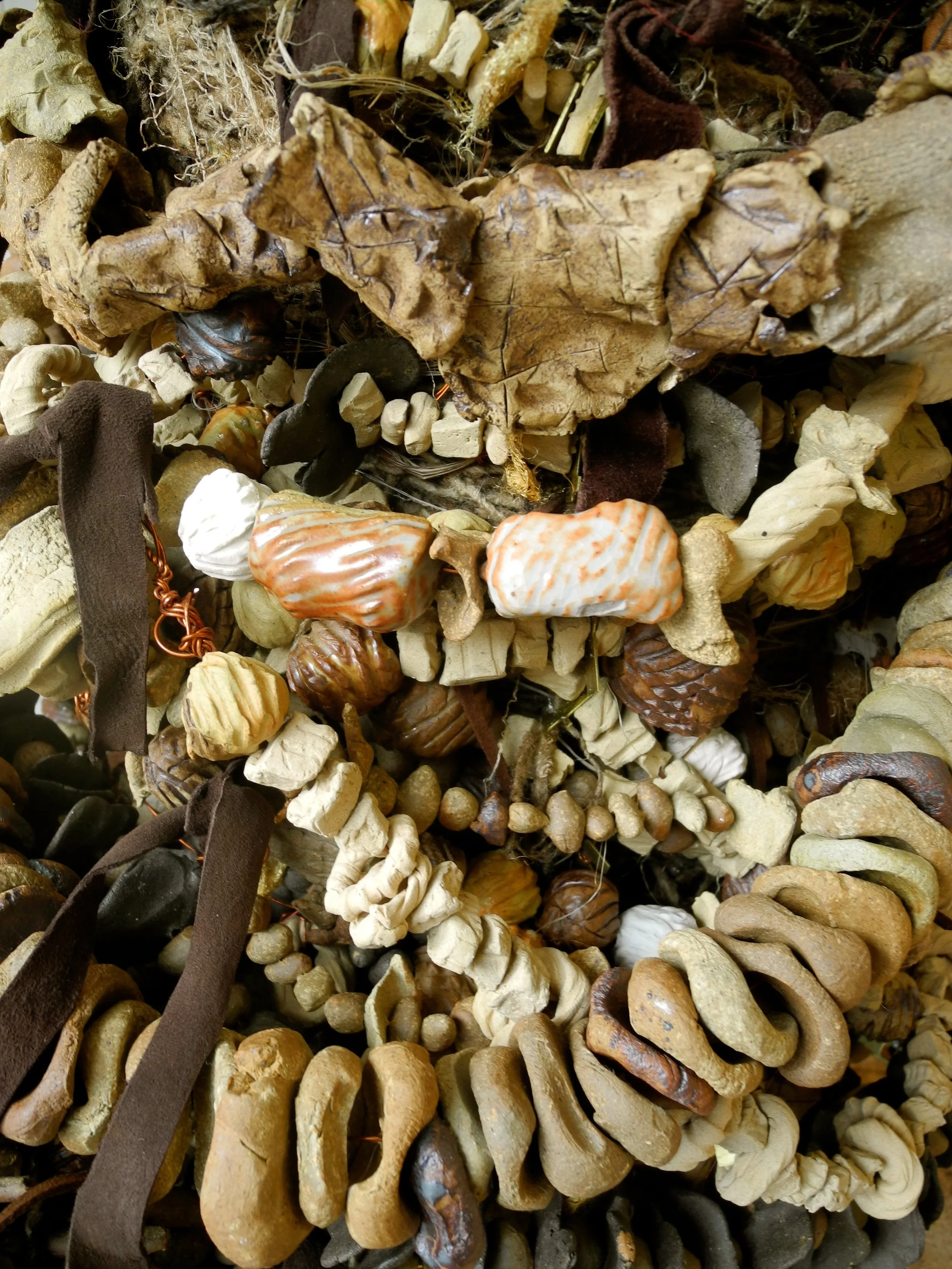
Offering
My sister's husband died of a massive heart attack the day after my late 79-year-old aunt's funeral service on July 29, 2023. He was 64 years old, and it was my birthday. We lost two monumental family members last summer suddenly and unexpectedly. On December 12, 2023, Mike, David's younger brother, died in his sleep from a heart attack six months after David's death. All three family members were college-educated. My beloved aunt was a community college English professor with a Ph.D.; my brother-in-law and his brother were also hard-working fathers and knowledge workers.

Offering by Shelita Birchett Benash
Japanese wood fired Anagama and Noborigam Kilns
Ceramic prayer bead sculpture

Still, as African Americans, all three complained of work-related stress while contending with depression, anxiety, and chronic illnesses. And they utilized smoking as a coping mechanism. My aunt, brother-in-law, and his younger brother each carried unresolved intergenerational traumas. All three also suffered in stoic silence, trapped inside traditional cultural barriers to engaging with doctors and healthcare providers, chronic illness shame, and low health literacy. 2023 was a devastatingly sad time for my family.
In April 2024, marked six years since my nephew, Chadd, died at the age of 30 due to a suicide overdose. Chadd was battling untreated depression and addiction. As a result of my family's historical experiences and my positionality within the intersecting sociocultural and socioecological aspects of stress, trauma, crisis, low health literacy, and mental health coping mechanisms of families contending with chronic addictions and mental illness, I feel a collective consciousness and accountability to work towards health justice and structural change through socially engaged mindfulness and culturally centered research. My commitment to serving historically marginalized communities is rooted in my experiences around the devastating impacts of low health literacy and barriers to accessing mindfulness-based programs and education. In 2022, I was introduced to MBSR. I took my first mindfulness-based stress reduction class, as I would learn over the next year and a half; committing to a formal mindfulness meditation practice was critical to my successful recovery from frontline healthcare provider pandemic burnout.
My family and I reflect African American and BIPOC stress research findings, cultural traditions that include rising out of poverty, the Black church, spirituality, mourning rituals, shame, meaning-making, and repression surrounding family survivors of loved ones who struggle with mental health, chronic illness, addictions, racialized trauma, and overdose death. As a BIPOC family in the United States, we have also experienced the racialized oppression endured by the justice-involved, incarcerated, stigmatized, and their loved ones. Still, our cultural traditions and indigenous wisdom have taught us to rise above poverty and have provided us with solid educational values, a sense of spirituality, and meaning-making, even in the face of shame and repression. Inspired by the profound death experiences of loved ones, goals for my interdisciplinary Ph.D. studies at Antioch include creating culturally adapted arts-based Mindfulness-Based Programs for historically marginalized communities with the necessary tools and resources to increase our capacity for self-love and self-awareness through socially engaged mindfulness and self-compassion practices and education. We deserve our flowers while we are living. Through the power of socially and culturally engaged mindfulness, we can save our collective lives.